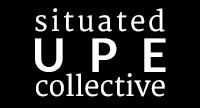Reflection on Uta-Do African Cities Workshop
Medhanit Ayele
Whatchu gonna do? Vs. What are you going to do about it? Or the Swahili version of dear Kenyans ‘UTA-D0?’ Or አዪ..ታዲያ ምን ታረገዋለህ? …. ወይስ …. ምን ልታደርግ ነው? በሚሉት ጥያቄዎች መሀል ያለው ልዩነት Of the Ethiopians. All refer to the power tension defining one’s response when faced with a discomforting act.
The African city is a place of Conflict, Tension: whether to succumb to a system that one considers unjustified or to fight back, enraged, at times while standing Alone.
Heading back home in the late evening, faced with paying twice the taxi fare? whatchu gonna do? Pay twice the taxi fare? or negotiate back.
Pulled back by traffic police: bribe off to head your day? or go through the mind-boggling bureaucracy fighting back?
Criminal activities rise in your neighborhood:
Do you tell your kids to come home much earlier? Do you dismiss your evening plans?
or you fight back to earn the safety of the night?
Witness the government conduct unlawful practices: do you fight back?
or slide along the tide decently, calling upon the perks of getting out of the way.
And many more conflicts with much more intense consequences are faced daily by the African Urbanite in the African Cities. Assured you wouldn’t run short of instances where you are faced with either fighting back or succumbing to the timely powerful in your city, I cut the scenarios short.
UTA-DO: African Cities Workshop was organized to understand, theorize, and research African cities from a fresh outlook through the critical lens of examining the peculiarities of these cities. Placing terminologies under the spotlight, UTA-DO was a platform to discern the nuanced meanings of Southern Urbanism, Peripheral Urbanization, Slum Urbanism, Splinter urbanism, and many more used to identify African Cities.
Mindful of the distinctive urban scenery of African Cities, the workshop was successful in having room for everyone’s experience, perception, and articulation of African Cities while enabling interdisciplinary discourses – much needed in analyzing Urban Africa. The mix of academicians, activists, and artists, many of whom Africans, pushed the borderlines of theorizing African Cities and Southern Urbanism.
The notion of UTA-DO surfaced in the discourses however different the subject topics appeared to be: infrastructure, labor, activism, urban governance, sense of belongingness, identity, gender, you name it. Participants were challenged with how much power resides in the hands of African Urbanites to shape their cities. “Are we, the residents of the African Cities, powerful at all? If so, to what extent are we powerful enough to re-define our cities?” Do you feel empowered in your city? How often do you stand up and negotiate with the powerful to bring out the best of your city?
These critical questions bring upfront the challenges of belongingness African urbanites face within their cities. Addis Ababa, exempt from colonial past, seemingly appears immune to such challenges; however, if one delves deeper, below the layers, the city’s own ethnical, political, and economic structures with the urban governance structure unfold to anchor the question of the sense of belongingness at its core. Who is አዲስ አበቤ? (Addis Abebian?) – The elephant in the room in discourses regarding the city of Addis. How intimate are people with their Sefer (Residential neighborhoods)? How often do they actively interact with the provincial urban government? Questions to assess to understand urbanites’ feel of ‘home’ within their city Addis Ababa.
Nairobians are known to call the countryside ‘home’ while referring to their residence in the city as their ‘house’; this isn’t a mere linguistic occurrence; rather, the implication of varying intensity of attachment towards these two localities.
A sense of belongingness, and ownership, of one’s own city, determine how much one is motivated to give back to their community. The feeling of belongingness is critical in harboring active citizenry, urban activism, and participatory urban governance. However, though fundamental residents’ sense of belongingness for cities is, African Cities seem to be continuously challenged to curate inclusive and better urban spaces for their African residents – leading to a fragmented, unorganized, urban fabric, the stepping stone for an insecure, chaotic, and politically unstable urban environment.
UTA-DO coins the range of reactions witnessed in African Cities: a sense of helplessness (አዪ..ታዲያ ምን ታረገዋለህ?) and defiance to fight back (ምን ልታደርግ ነው?). Anchored in these critical power struggles, the workshop was able to analyze the African city from different corners as Africa-China relations, Black Geographies, Gender and Identity, Knowledge and Activism, and Research methodologies helpful in studying African Cities.
The workshop was an impactful session in initiating local narratives, contextual realities, and urban outlooks from the perspectives of the African cities themselves, in contrast to the polarized Global North-South Urbanization perspective. Following local narratives, Sounds of Nairobi presented their works on how city ambiance sounds can be utilized as urban research material that can be archived, researched, and explored as a source of information that can narrate the story of the city – of Nairobi.
Overall, the first UTA DO: Theorizing African Cities workshop is the stepping stone toward a better understanding of Urban Africa. Hoping to see UTA DO 2023 take place, possibly in a different African city, engaging as many Africans from different cities of the continent.
The Inaugural Uta-Do African Cities Workshop (2022) was hosted in Nairobi at the British Institute of Eastern Africa. Uta-Do 2022 was conceptualized and convened by Wangui Kimari, Prince Guma and Liza Rose Cirolia.
The 2022 programme was made possible by the generous support of the African Centre for Cities (University of Cape Town), British Institute in Eastern Africa, Mathare Social Justice Centre, the University of Basel, the Riksbankens Jubileumsfond under the project Examining nature-society relations through urban infrastructure (project number: P19-0286:1) and the Volvo Research and Educational Foundations, under the MAC programme.
For more information see:
Event page: https://www.africancentreforcities.net/programme/uta-do-african-cities-workshop/
For information on future Uta-Do events, please contact Wangui (kuikimari@gmail.com) or Liza (liza.cirolia@uct.ac.za)
